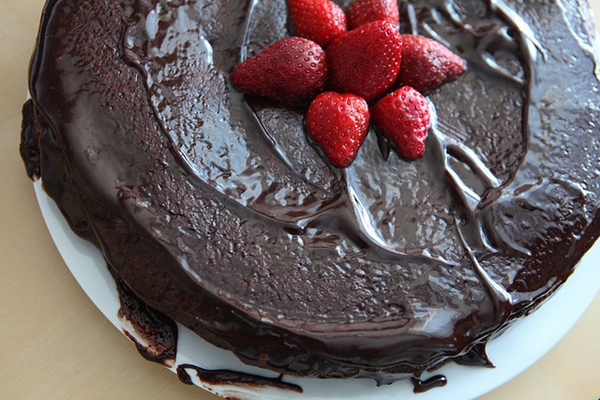Chocolate for breakfast? If you say so. Photograph courtesy of Flickr user Mr Michael Phams.
Let them eat cake!
At least, that’s what researchers at Tel Aviv University are saying, after witnessing obese adults shed some serious weight from eating dessert for breakfast.
Even more surprising: Cookies, candy, and cake helped them keep the weight off in the long run.
Almost 200 clinically obese, non-diabetic adults were split into two groups for the study, which was published in the journal Steroids. Each group was assigned the same caloric intake, but the first was given a low-carb diet with a 300-calorie breakfast, while the other ate a 600-calorie breakfast high in protein and carbs—complete with chocolate dessert.
At 16 weeks, both groups lost an average of 33 pounds. But after 32 weeks, the first group regained 22 pounds. Surprisingly, the dessert group lost another 15 pounds per person—a total of 40 pounds more than their peers in the other group.
See Also:
It sounds insane, but researchers say the results actually make sense, and local nutritionist Stephanie Mull somewhat agrees. “Having a larger breakfast has been supported by research for years,” she says. “It starts the day by providing the body with the necessary fuel to support activity.” The body’s metabolism is most active in the morning, she adds. Then you can burn off the calories during the rest of the day.
Another aspect: While cutting desserts from one’s diet can help in the beginning, it can also have the opposite affect in the long run, says Mull, who wasn’t involved with the study. “If people love a food but don’t allow themselves to have it when they are ‘dieting,’ then they develop a psychological connection to the forbidden food.”
Giving up sweets and carbohydrates can potentially lead to withdrawal symptoms, cheating on one’s diet, and, eventually, more weight gain. “It leads to inconsistent eating habits because they can’t find a happy balance,” she says.
That’s why there’s a place for every kind of food, as long as it’s in moderation, says Mull. For example, dark chocolate is good for heart health and the immune system, but its quantities should be restricted to one ounce per day since it’s high in fat and sugar.
Breakfast, lunch, and dinner should contain roughly the same amount of calories, she adds. Snacks can fill the gaps between meals, helping to fuel the body and muscles for activity throughout the day.
Try one of Mull’s recommendations for a healthy breakfast (dessert optional):
- Whole wheat bagel with nut butter and a piece of fruit
- 1½ cups of whole grain cereal with nonfat or lowfat milk and scrambled eggs
- 1 cup of lowfat yogurt with peanut butter mixed in, topped with granola and fruit
- Whole wheat English muffin topped with sliced tomatoes and cheese
- Whole wheat or whole grain tortilla filled with scrambled eggs, feta or cheddar cheese, and veggies (try onions, tomatoes, avocado, or spinach).
To read an abstract of the study, click here.


















